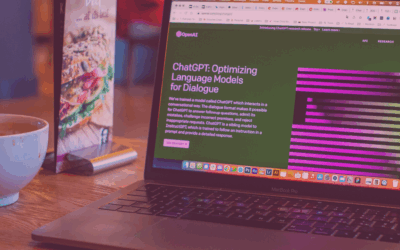In order to reap the most from link building, there needs to be a strategy behind it. But how do you decide which pages on your site to build links to, and how do you know which keywords to use for those links?
The simple answer is: the pages you want to rank and the keywords you want those pages to rank for.
But, since you’re reading this, you probably need a little more guidance than that. We’ll give you our tips on how to choose which pages and keywords to target with link building.
Why Keyword Target Backlinks Matter in SEO
Keyword target backlinks play a vital role in enhancing various aspects of your website’s SEO strategy. Let’s dive into why they matter:
Keyword Target Backlinks Give Context
By incorporating targeted keywords or related terms into the anchor text of backlinks, you provide valuable context to search engines about the content of the linked page. This context helps search engine algorithms understand the relevance of your page to specific search queries, ultimately improving your chances of ranking for those keywords.
Keyword Target Backlinks Help Build Authority
When reputable websites link to your content using relevant keywords, it signals to search engines that your site is a trusted source of information on those topics. This association with authoritative domains can significantly boost your website’s credibility and authority within your industry or niche. As a result, your pages are more likely to rank higher in search engine results pages (SERPs), driving organic traffic to your site.
Keyword Target Backlinks Improve User Experience
Effective keyword target backlinks not only benefit search engines but also enhance the user experience. By guiding users to relevant and informative content through strategically placed backlinks, you improve their overall browsing experience. Users are more likely to engage with your website and explore additional pages when they encounter helpful links that align with their interests or search intent. This increased engagement signals to search engines that your site offers valuable content, further boosting your SEO efforts.
Which Landing Pages Should You Build Links To?
The two things you need to consider when choosing which landing pages to build links to are: the value of the page and the keyword opportunities for the page. Every website has pages that are more valuable than others, and you don’t want to waste SEO efforts on pages that don’t provide value.
Valuable pages are the ones that lead users to a purchase. However, it’s important to remember that valuable pages don’t have to be product or service pages. Blog posts can provide middle-of-funnel or top-of-funnel value by building users’ interest in your product/service.
Once you’ve determined which pages are valuable and which aren’t, you need to figure out which valuable pages have good keyword opportunities. Keyword opportunities can be keywords that the page is already ranking for that you want to move up, or keywords that the page isn’t ranking for yet that you want it to rank for.
Value of the Page:
Identify the pages on your website that offer the most value to users. These are typically pages that directly contribute to conversions, such as product or service pages. However, don’t overlook the potential value of blog posts or other content that engages users and guides them towards a conversion.
Keyword Opportunities:
Once you’ve identified valuable pages, assess their keyword opportunities. Look for keywords that the page is already ranking for and ones that it has the potential to rank for. This might involve targeting keywords with high search volume and low competition, or focusing on keywords that align with your target audience’s search intent.
We’ll explain how to choose keywords next.
Which Keywords Should You Build Backlinks For?
There are many tools out there that will show you keyword metrics which usually include Search Volume and Keyword Difficulty. The higher the search volume, the more traffic you can potentially get from ranking for that keyword. The lower the difficulty, the less backlinks it will take to rank for that keyword. Therefore, you want to look for keywords with relatively high search volume and relatively low difficulty.
How to Choose Keywords for Link Building
- Analyze Search Volume: Look for keywords with significant search volume. Higher search volume indicates greater potential for traffic if you rank well for those keywords.
- Assess Keyword Difficulty: Consider the difficulty of ranking for a particular keyword. Lower difficulty suggests that it will require fewer backlinks to achieve a high ranking.
- Answer User Questions: Target keywords that directly address common questions or pain points of your target audience. Providing valuable answers can attract relevant traffic and improve user engagement.
Prioritizing Your Efforts
With numerous keyword and page opportunities, it’s crucial to prioritize your efforts. Focus on two or three opportunities at a time, starting with the ones that offer the most significant potential impact. Once you see results, continue to build links to those pages while also exploring new opportunities.
What Is a Keyword Target Backlink?
In the realm of SEO, understanding the different types of keyword target backlinks is crucial for crafting a well-rounded link building strategy. Let’s explore the various types:
Exact Match
An exact match keyword target backlink occurs when the anchor text of the backlink precisely matches the keyword or key phrase you’re targeting. For example, if you’re aiming to rank for “best SEO tools,” an exact match backlink would have “best SEO tools” as the clickable text.
Partial Match
A partial match keyword target backlink involves using a variation or partial form of your target keyword within the anchor text. This approach provides some flexibility while still signaling to search engines the relevance of the linked page. For instance, if your target keyword is “SEO strategy,” a partial match backlink might use anchor text like “effective SEO strategies.”
Branded
Branded keyword target backlinks incorporate your brand name or variations thereof within the anchor text. While not directly focused on specific keywords, these backlinks reinforce your brand’s authority and association with particular topics or niches.
Generic
Generic keyword target backlinks use non-specific anchor text such as “click here,” “learn more,” or the URL itself. While these backlinks may not directly optimize for targeted keywords, they still contribute to the overall link profile and can drive valuable referral traffic. Incorporating a mix of generic and keyword-rich anchor text helps maintain a natural link profile and diversify your backlink portfolio.
Hopefully, through this process you find so many opportunities for your site that you can’t build links for all of them at once. In that case, prioritize the opportunities and work on two or three at a time. Once your best opportunities start seeing results, you can move on to the next. But don’t neglect the keywords that got results. You need to continue to build links to those pages periodically so you won’t lose your rankings.
Whether you choose the landing pages and keywords on your own or are looking for help crafting your link building strategy, BASE can help. Contact the team at BASE to get help crafting and implementing a link building strategy and start ranking higher on Google today.
FAQ: Keyword Target Backlinks
Yes, strategically placed keyword target backlinks from reputable sites can signal to search engines that your content is valuable, thereby potentially increasing your domain authority.
How often should I review and adjust my keyword target backlinks strategy?
We recommend reviewing your strategy quarterly. SEO landscapes evolve, and regular audits can help you adapt to changes in search algorithms and competition.
Are there risks associated with keyword target backlinks?
While keyword target backlinks are valuable, it’s crucial to avoid over-optimization. Using the exact match anchor text excessively can appear manipulative to search engines and may result in penalties.
How do I find the right balance between exact match and partial match backlinks?
Aim for a natural backlink profile with a mix of exact match, partial match, and branded anchor texts. There’s no one-size-fits-all ratio, but keeping exact match links below 20% of your total backlink profile is a good rule of thumb.
Can I use keyword target backlinks to improve rankings for local search?
Absolutely. Incorporating geo-specific terms in your anchor text can help improve visibility in local search results, making it a powerful tactic for local SEO.
Should I focus on building keyword target backlinks to my homepage or internal pages?
While your homepage is important, building links to internal pages can drive traffic to specific content and help those pages rank for targeted keywords. It’s about finding the right balance based on your goals.
How do I track the impact of my keyword target backlinks?
Use SEO tools to monitor your backlink profile, keyword rankings, and website traffic. Look for correlations between new backlinks and movements in rankings or organic traffic to assess impact.



